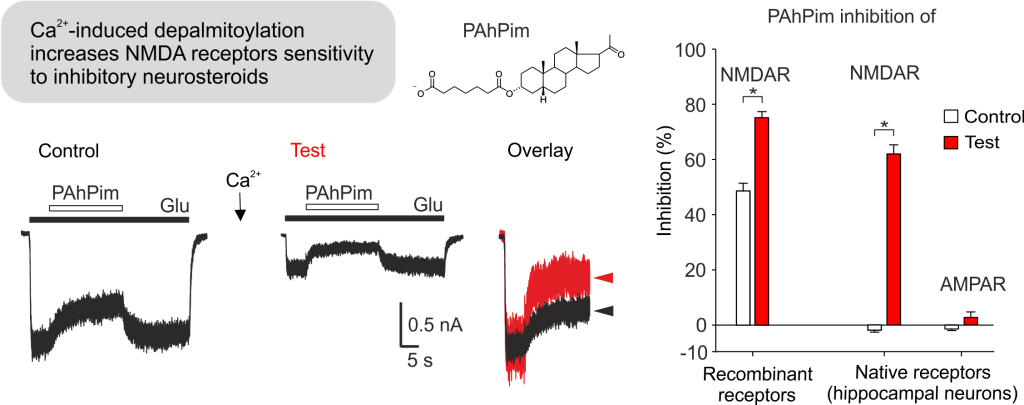N-methyl-D-aspartate (NMDA) receptors are ionotropic glutamate receptors that are crucial for synaptic transmission, learning, and memory acquisition. Their overactivation leads to pathology associated, for example, with stroke or Alzheimer’s disease. Overactivation of NMDA receptors can be inhibited by a number of substances, including neurosteroids.
Using electrophysiological and molecular-biological techniques, we have elucidated the molecular mechanism by which NMDA receptor susceptibility to inhibitory neurosteroids is increased. This change is due to depalmitoylation of three cysteines (C849, C854, C871) in the intracellular part of the GluN2B receptor subunit, which occurs after a transient increase in intracellular concentration of Ca2+. Beyond the pharmacological consequences, depalmitoylation of the receptor results in a change in kinetic parameters in favor of the closed state. Increased sensitivity of NMDA receptors to inhibitory neurosteroids is thus another of the neuroprotective mechanisms that prevents excitotoxic damage to nerve tissue.
Hubálková, Pavla – Ladislav, Marek – Vyklický, Vojtech – Smejkalová, Tereza – Hrcka Krausová, Barbora – Kysilov, Bohdan – Krušek, Jan – Naimová, Žaneta – Korínek, Miloslav – Chodounská, Hana -Kudová, Eva – Cerný, Jirí – Vyklický ml., Ladislav Palmitoylation Controls NMDA Receptor Function and Steroid Sensitivity. Journal of Neuroscience 2021. 41 (10) 2119-2134, F: 5.674 DOI











